Trump survives in repeat of past political violence against American presidents
The world has been rocked by the attempted assassination of Donald Trump at his re-election rally in Pennsylvania – but the history of political violence in the US dates to Abraham Lincoln
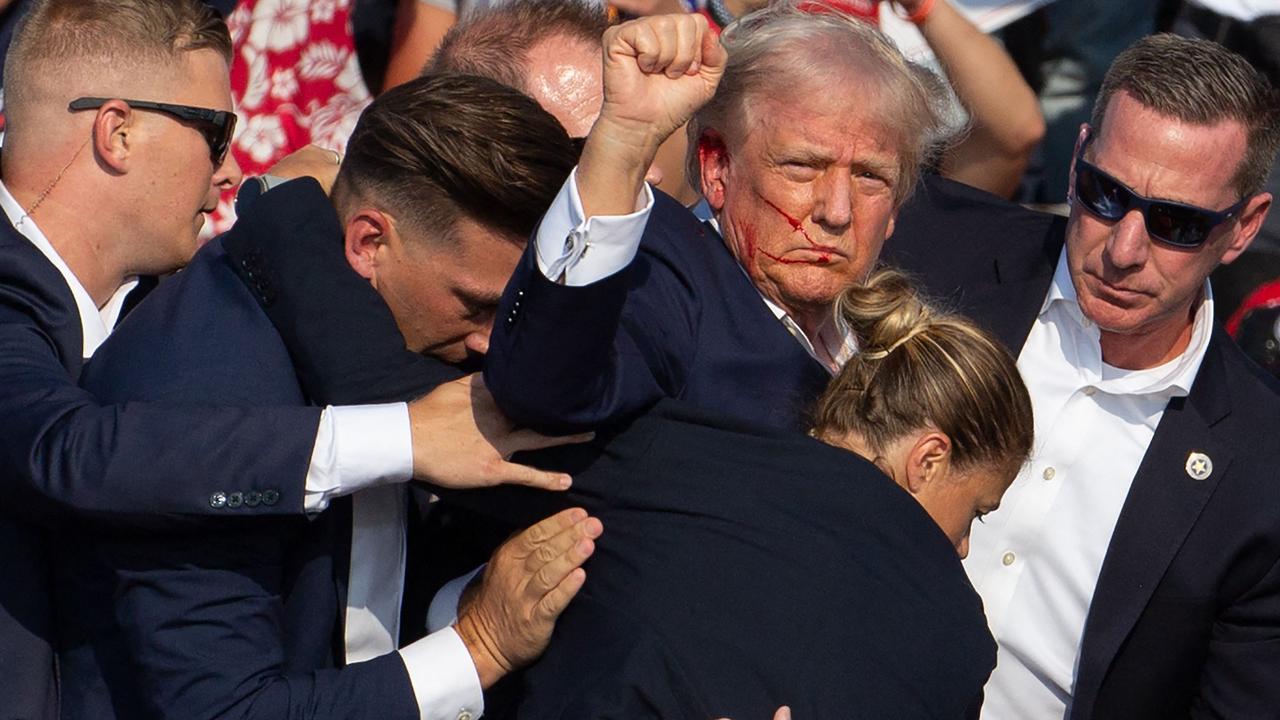
READING LEVEL: RED
Most Australians were eating their breakfast on Sunday morning when Donald Trump’s re-election bid for the American presidency took a shocking and violent turn. The former US president’s Pennsylvania rally* was being broadcast live; some of you may have even seen the events as they unfolded, and otherwise you would have heard by now about the attempt on Trump’s life.
It’s big news.
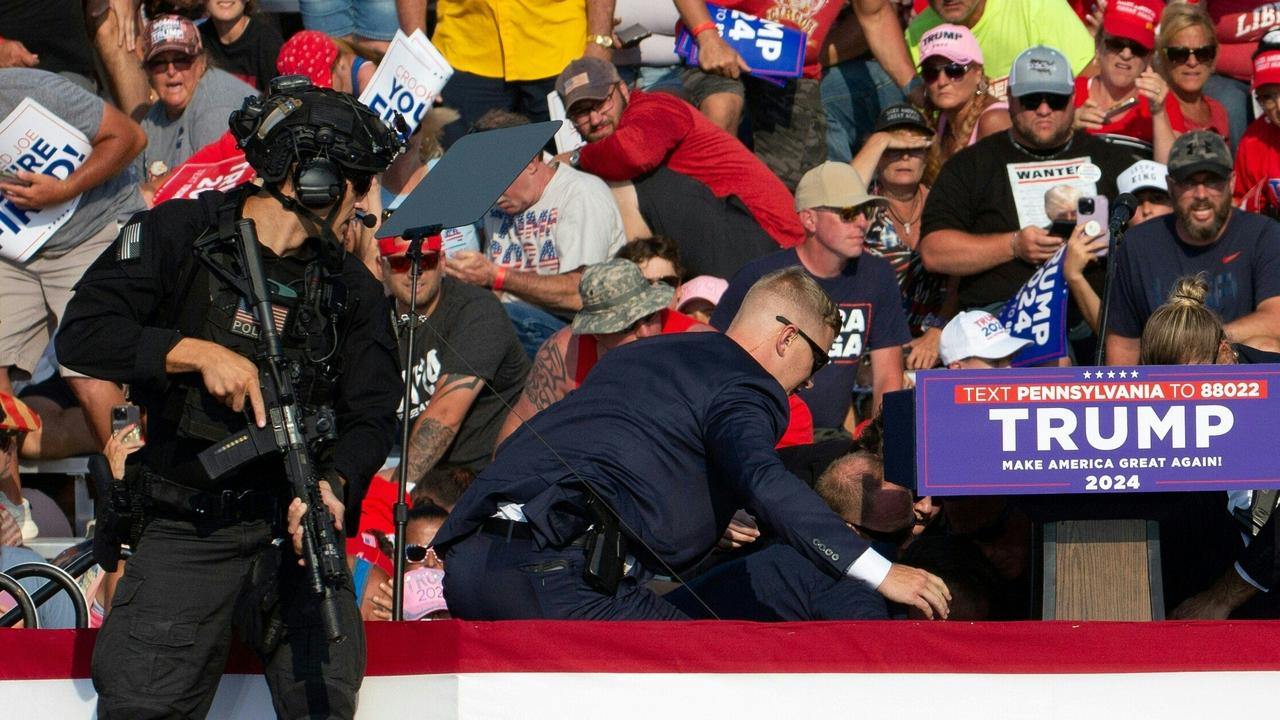
Trump walked away, but an audience member was killed and at least two others were injured while attending the rally. The 20-year-old shooter was also killed.
When these major news events occur, they are upsetting and disturbing – but there is often a broader context that can help us make sense of what has happened.
In the case of political assassination* attempts, this is not the first time that political violence has been directed against a US sitting or former president, a presidential nominee or a likely future candidate. It doesn’t make what happened to Trump on the weekend any less terrible, but politically motivated violence has a long history in America.
No less than four past US presidents have been assassinated while in office and a further two have survived failed attempts.
Here’s a look at some of the major incidents of the past.
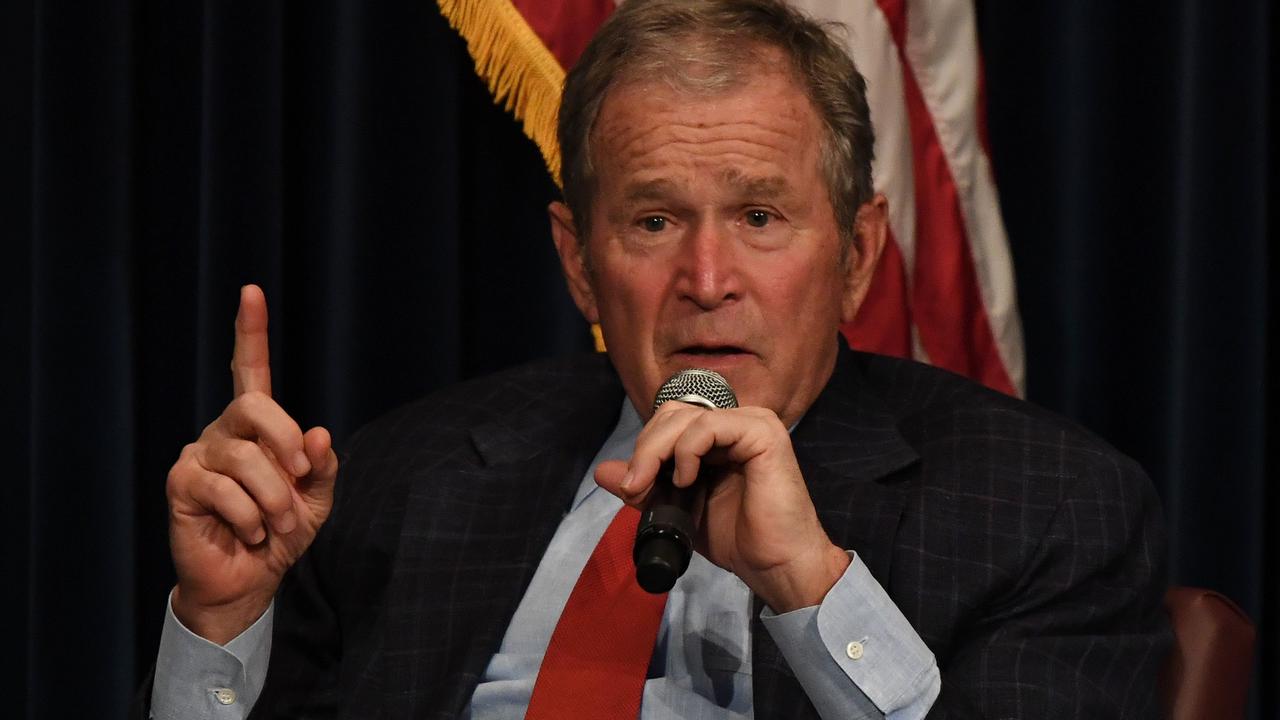
PRESIDENT GEORGE W. BUSH
President Bush was attending a rally in the Georgian capital of Tbilisi in Eastern Europe with Georgia’s then-President Mikhail Saakashvili on May 10, 2005, when Vladimir Arutyunin threw a grenade* toward them. Thankfully the two presidents were behind a bulletproof barrier and the grenade failed to detonate*. Arutyunin, who was sentenced to life imprisonment, later said he “hated” Georgia’s government for being a puppet to the US.
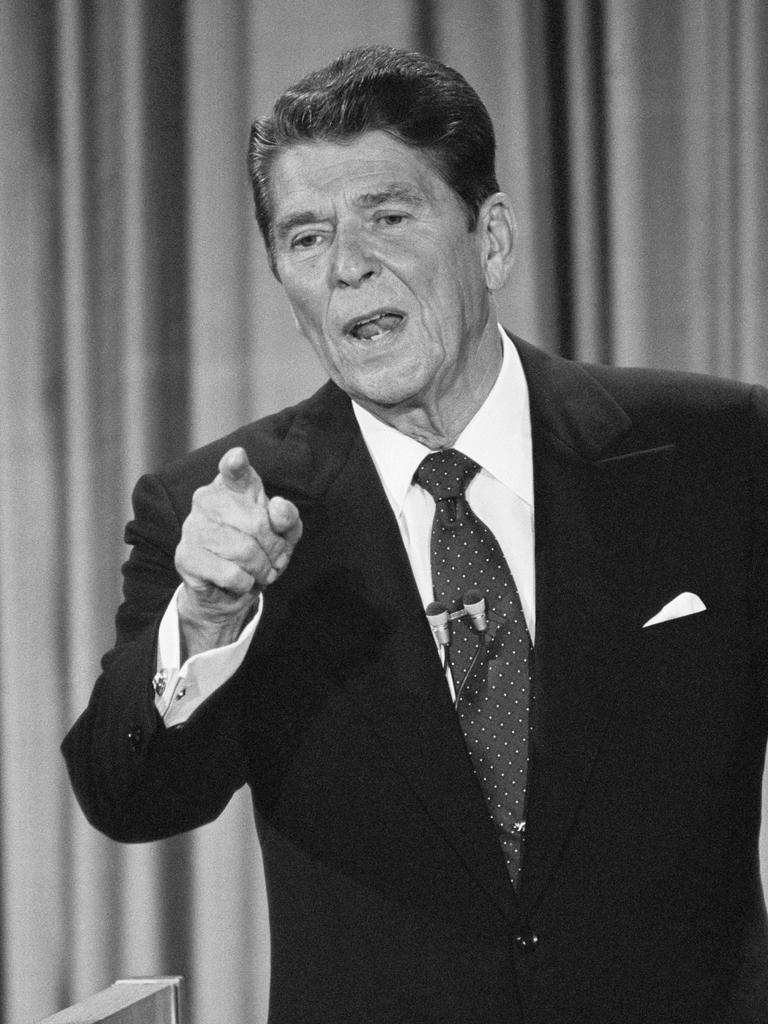
PRESIDENT RONALD REAGAN
Newly elected Republican president Ronald Reagan was returning to his motorcade* after a speaking engagement in Washington on March 30, 1981, when he was shot in the arm by John Hinckley Jr.
It is uncertain that Hinckley was politically motivated – rather, he was mentally ill and infatuated* with the actor Jodie Foster. Shooting a politician emulated* a story arc in one of Foster’s best known films. As with the attack on Trump, bystanders were injured. President Reagan survived and served two terms.
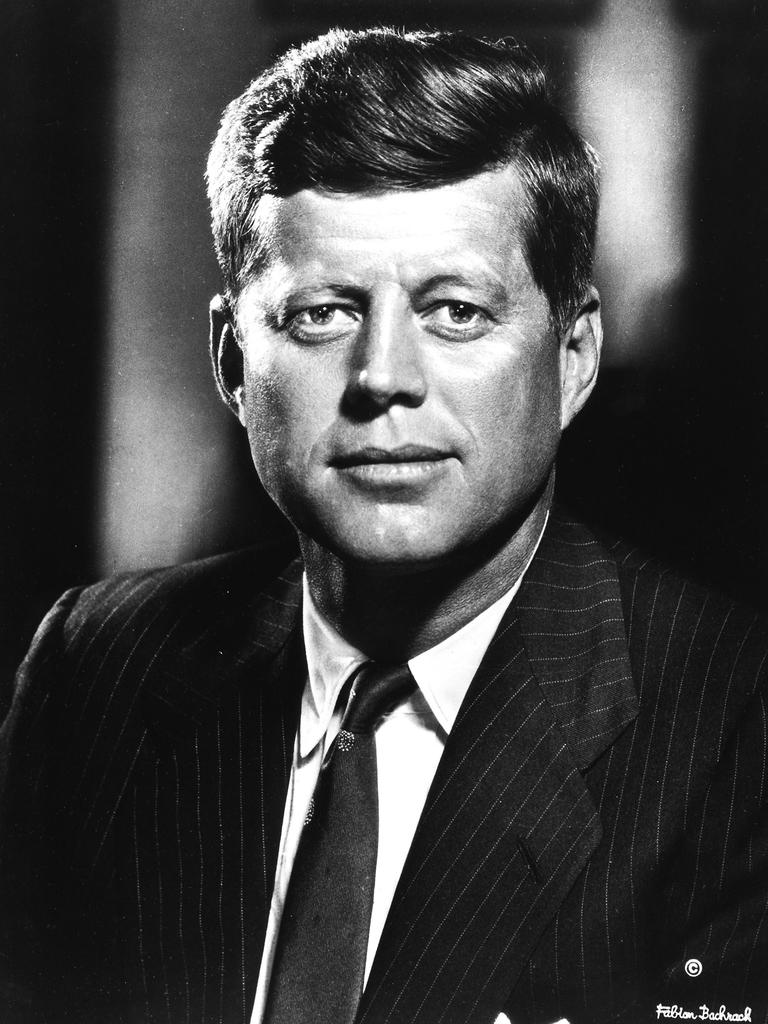
PRESIDENT JOHN F. KENNEDY
It’s been over 60 years since November 22, 1963, but many Americans still know the date that charismatic* President John F. Kennedy was shot and killed as his motorcade drove through downtown Dallas, Texas. The sniper was Lee Harvey Oswald, who was arrested hours after the shooting.
Incredibly, Oswald was fatally shot two days later by local club owner Jack Ruby as police were escorting Oswald to a county jail.
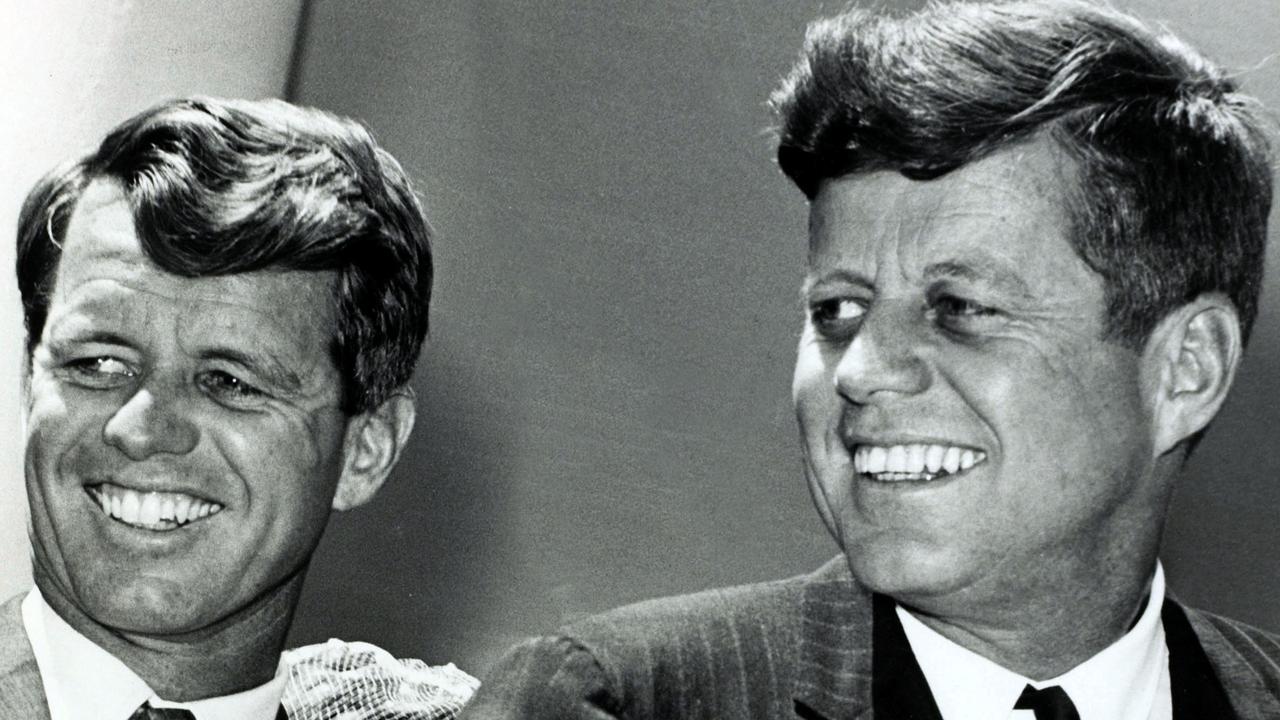
PRESIDENTIAL CANDIDATE ROBERT F. KENNEDY
Five years after his brother was assassinated, Senator “Bobby” Kennedy was killed at a hotel in LA, right after his victory speech after winning the 1968 California primary, a key victory in his bid to secure the Democratic presidential nomination. Assailant* Sirhan Sirhan was convicted* of Kennedy’s murder and is serving a life sentence. He was last denied parole* in March 2023.
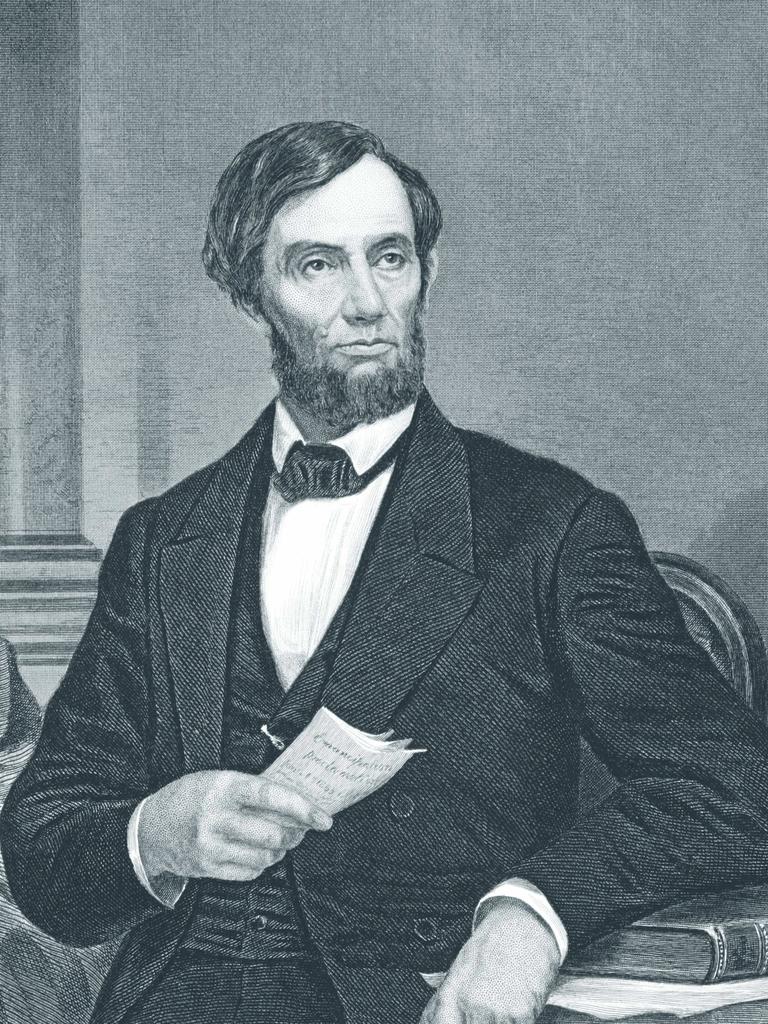
PRESIDENT ABRAHAM LINCOLN
President Lincoln had the misfortune of becoming America’s first assassinated president. In what would become the dominant style of such attacks, President Lincoln was fatally wounded in Washington on April 14, 1865, after being shot by Joh Wilkes Booth.
After taking office in 1860, President Lincoln made it his mission to end slavery* in America. While it’s hard to believe now, civil war broke out over slavery because the southern states were against reform*. But President Lincoln prevailed*, issuing the Emancipation* Proclamation* in 1863, forever freeing Confederate* slaves from servitude*. This historic act may have motivated Booth’s attack and Lincoln paid the ultimate price for his profound contribution to his country.
LUCKY ESCAPES
Trump joins Reagan; Bush; the 32nd US president Franklin D. Roosevelt; 33rd president Harry S. Truman; 38th president Gerald Ford and presidential candidates Theodore Roosevelt and George C. Wallace as a survivor of an assassination attempt. Almost every incident has involved the use of a firearm by a single shooter.
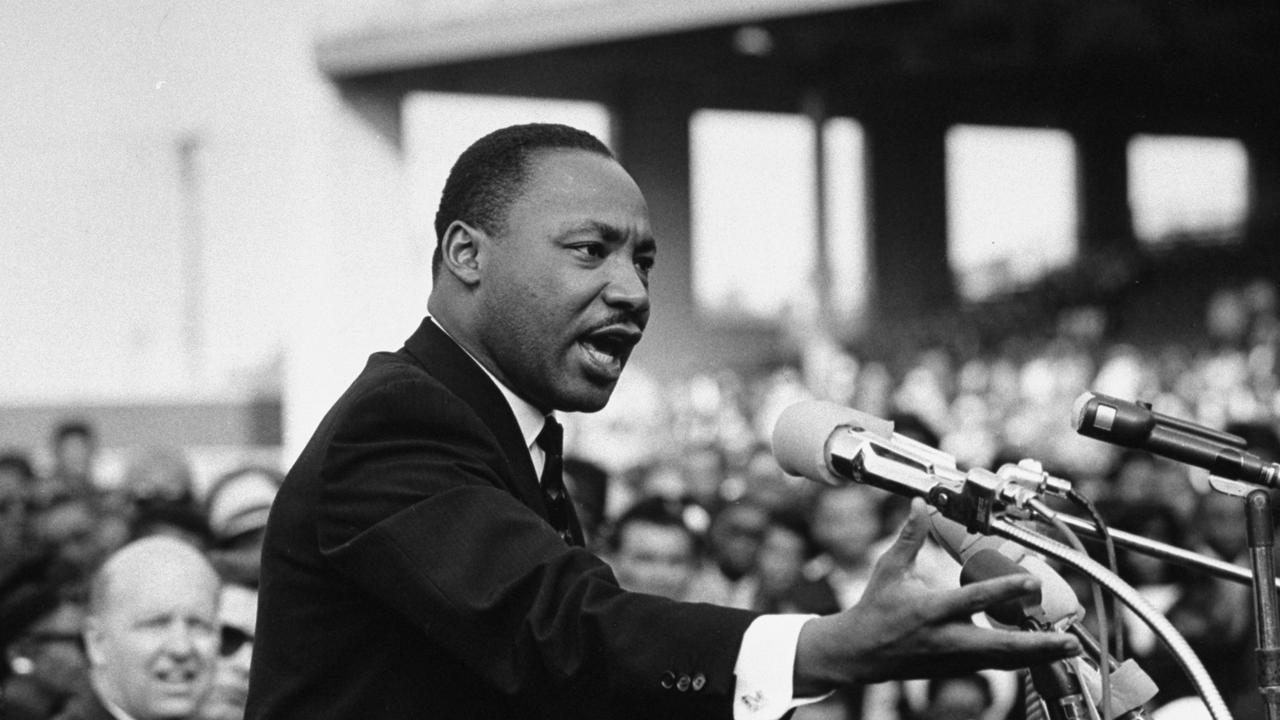
WHAT ABOUT MARTIN LUTHER KING?
A key figure in the fraught and deadly American civil rights movement, the Baptist minister and activist Martin Luther King was not actually a politician.
Dr King was a gifted orator* whose peaceful advocacy for equal rights for African-Americans earned him the Nobel Peace Prize in 1964. His nonviolent philosophy, inspired by his faith and the peaceful teachings of Mahatma Gandhi, included the “I Have a Dream” speech, one of the most revered* orations ever written and delivered in English.
Dr King was shot dead on 4 April, 1968, while standing on a hotel balcony in Memphis, Tennessee. News of his death triggered racial violence across America during which more than 40 people died.
HAS ANYTHING LIKE THIS EVER HAPPENED IN AUSTRALIA?
Yes – once. Former Labor and Opposition Leader Arthur Calwell was shot on 21 June, 1966, after attending an anticonscription* rally in Sydney. The shooter was 19-year-old Peter Kocan, who was chased and detained until police arrived and arrested him.
Like Trump, whose ear was grazed by the bullet, Calwell was extraordinarily lucky. Calwell’s closed window deflected the bullet, which lodged in his lapel. He sustained chin lacerations caused by the shattered window glass fragments.
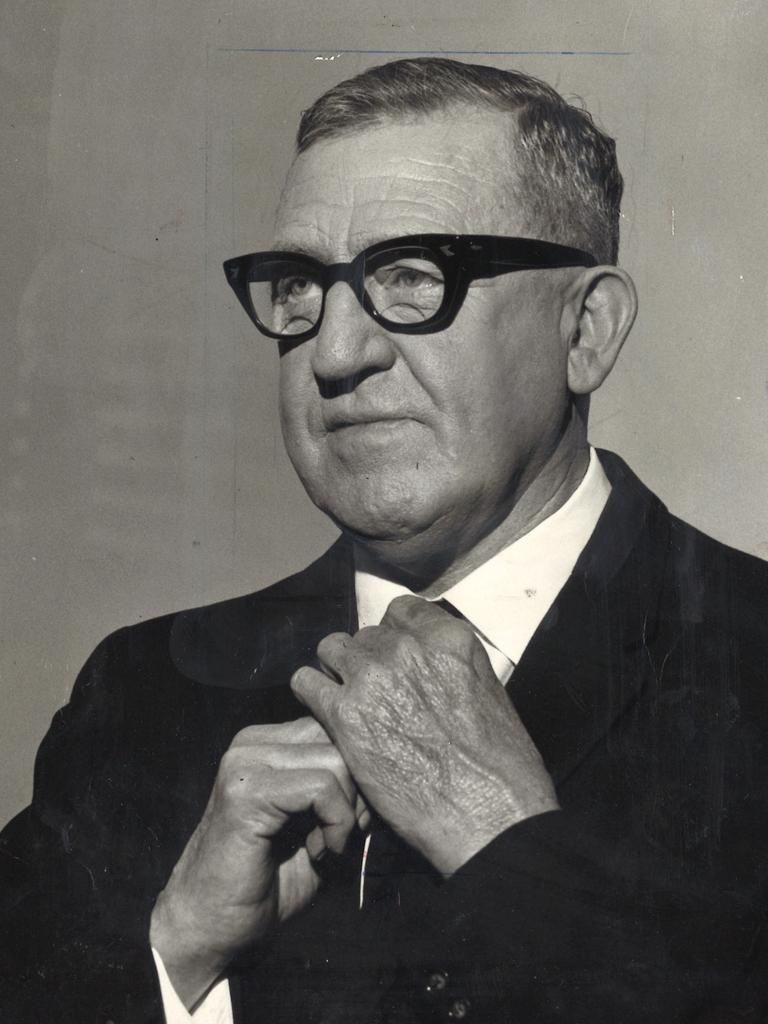
But despite our cultural similarities, Australia and America are very different places. America’s much quoted Second Amendment* on the right to bear arms is one element in a complicated issue resulting in the decades-long epidemic of gun violence in the US.
Australia’s laws for gun ownership - and our country’s gun culture more generally - mercifully has little in common with the situation in America.
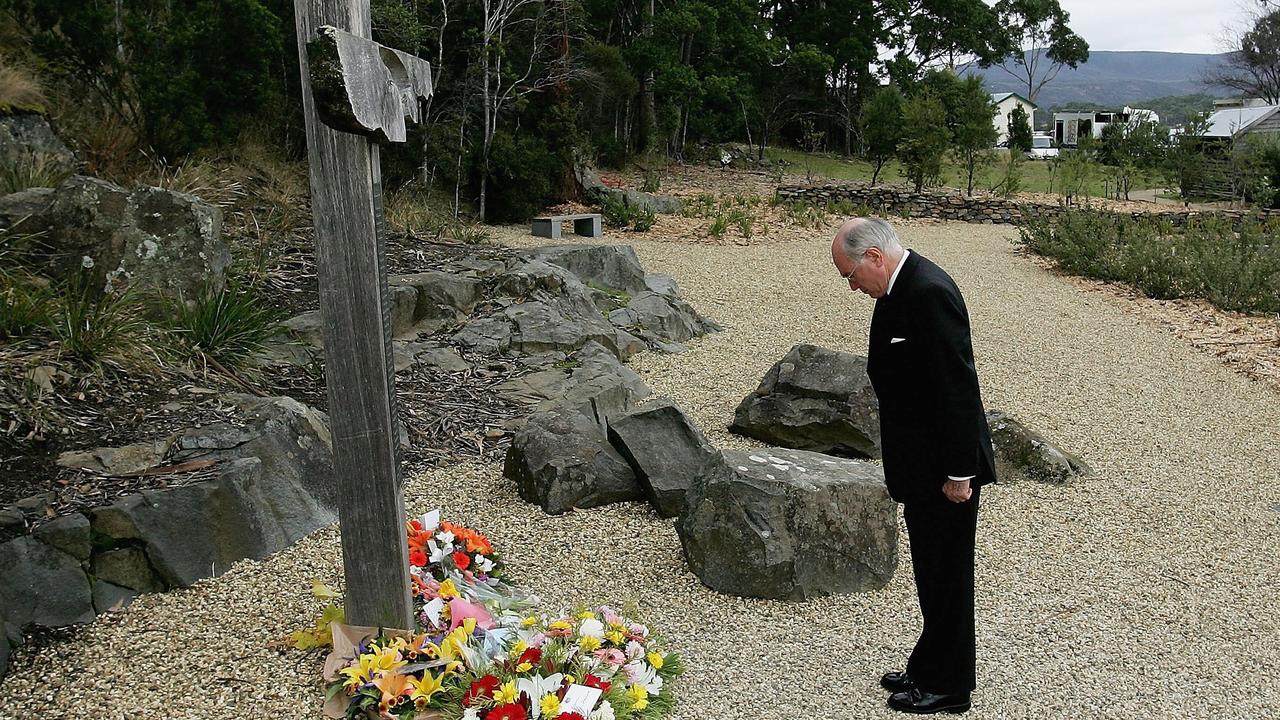
Former prime minister John Howard wasted no time in reforming Australia’s gun laws after our nation’s worst mass shooting, which happened in Port Arthur on 28 April, 1996.
Australia’s current Prime Minister Anthony Albanese and other leaders from across the political spectrum have joined world leaders in condemning the attack on Trump.
“Any act of violence is an affront to democracy – and it must be condemned, unequivocally*,” Mr Albanese said. “This was an inexcusable attack on the democratic values Australians and Americans share and the freedoms we treasure.”
POLL
GLOSSARY
- rally: a mass meeting of people gathered to support a cause or express a common concern
- assassination: the deliberate killing of a prominent or important person, often for political reasons
- grenade: a small bomb thrown by hand or launched, designed to explode and cause damage or injury
- detonate: to explode or cause to explode, often used in reference to bombs or other explosive devices
- infatuated: an intense but short-lived passion or admiration for someone
- motorcade: a procession of motor vehicles, typically carrying a prominent person or group of people
- emulated: imitated or copied with the intent to match or surpass
- charismatic: possessing a compelling charm or attractiveness that inspires devotion in others
- assailant: a person who physically attacks another
- convicted: found guilty of a crime by a court of law
- parole: the conditional release of a prisoner before the completion of their sentence, with the promise of good behaviour
- slavery: a system in which individuals are owned by others and deprived of personal freedom
- reform: the process of making changes to something (typically a social, political, or economic institution or practice) in order to improve it
- prevailed: proved more powerful or superior in a contest or conflict.
- emancipation: the process of being set free from legal, social, or political restrictions
- proclamation: a public or official announcement dealing with a matter of great importance
- Confederate: relating to the Confederacy, a group of southern states that broke away from the United States in 1861, leading to the Civil War
- servitude: the state of being a slave or completely subject to someone more powerful
- revered: deeply respected or admired
- orator: a person who is skilled in public speaking
- anticonscription: opposing compulsory enlistment for military service
- Second Amendment: an amendment to the United States Constitution that protects the right to keep and bear arms
- unequivocally: in a way that leaves no doubt
EXTRA READING
Trump’s golden sneakers sell out
Trump’s mugshot makes millions
Australia’s ‘word of the decade’ revealed
QUICK QUIZ
- What was the significant event that disrupted Donald Trump’s re-election bid for the American presidency?
- How did the attack on Trump compare to other assassination attempts on US presidents in history?
- What happened during President George W. Bush’s rally in Tbilisi, Georgia in 2005?
- What motivated Sirhan Sirhan to assassinate Senator Robert F. Kennedy in 1968?
- How did President Abraham Lincoln’s stance on slavery influence his assassination in 1865?
LISTEN TO THIS STORY
CLASSROOM ACTIVITIES
1. The global why’s?
An assassination attempt on a presidential candidate of the United States affects people all around the world. Answer the three “Why?” questions below to reflect on how and why it affects many people.
Why might this assassination attempt matter to me?
Why might it matter to people around me (family, friends, city, nation)?
Why might it matter to the world?
Time: allow 20 minutes to complete this activity
Curriculum Links: English, Ethical, Personal and Social, Critical and Creative Thinking
2. Extension
Why do you think America has had so many assassination attempts on political leaders compared to Australia?
What should they do to stop this political violence happening in the future?
Time: allow 15 minutes to complete this activity
Curriculum Links: English, History, Personal and Social, Critical and Creative Thinking
VCOP ACTIVITY
I spy nouns
Nouns are places, names (of people and objects), and time (months or days of the week).
How many nouns can you find in the article?
Can you sort them into places, names and time?
Pick three nouns and add an adjective (describing word) to the nouns.


